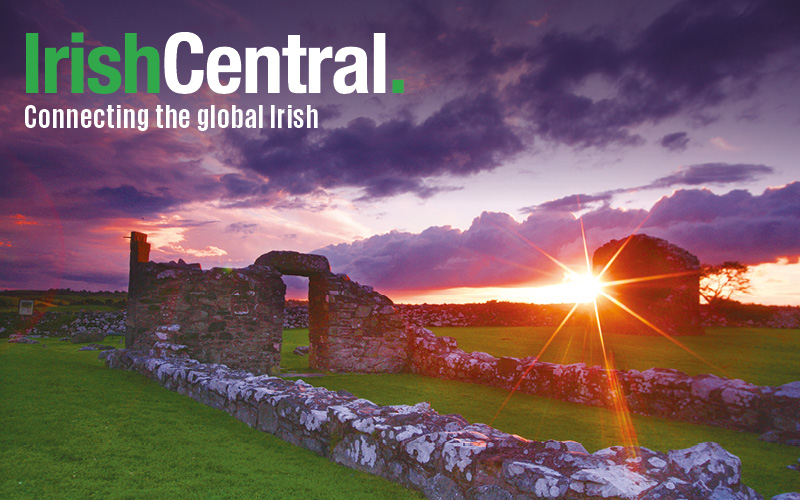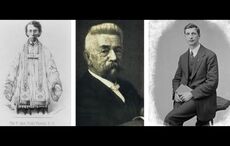When the Irish Government published its first official policy on the Diaspora in 2015 there was no mention of LGBT Irish immigrants anywhere in the document.
The omission was glaring, critics said, because it meant the unique perspectives and experiences of LGBT Irish immigrants were neither considered nor addressed.
Paul Dowling, a Chicago based Irish-born social worker and a gay man, has learned through his work that exclusion – no matter how unintentional – leads to invisibility and he wants to change that.
In response to the omission Dowling, a native of Gorey in County Wexford, is assembling a comprehensive reply.
First he has created At Home Abroad, a new website he hopes will encourage Irish LGBT immigrants to record and share their often hidden histories and perspectives.
“I want to create better understanding of the LGBT experience of living in and then leaving Ireland,” Dowling, who has lived in Chicago for six and a half years, tells IrishCentral.
The point of At Home Abroad is to create a new forum for stories that have rarely been recorded, Dowling says. “That’s why I have put my own story up there alongside others,” he adds.
With regard to the government's 2015 Diaspora policy, Dowling is candid: “You can’t have a meaningful conversation about any group or entity unless you actually name them and acknowledge their experience.”
“So many immigrants left Ireland for so many different reasons, but the experience of growing up LGBT in Ireland is unique, as is their immigrant experience, and it should be acknowledged.”
The second part of Dowling’s project is policy related. “I want to attend the Global Irish Civic Forum at Dublin Castle in February 2017 to ask the government to include the LGBT Irish experience in a revised Diaspora policy.”
@Joe_McHugh_TD invites you to the #global Irish Civic Forum
— IrelandRepBrussels (@IrelandRepBru) October 10, 2016
in Feb 2017 in Dublin. Express an interest to attend @ https://t.co/SM7t8qvcYP pic.twitter.com/0mvvrcnVzJ
In the past few years there’s been a major drive by the government to engage with the Irish community abroad, Dowling says, so it was surprising to see Irish LGBT’s so conspicuously omitted.
The third part of Dowling’s planned response is the launch of a Change.org internet petition to put the Irish LGBT immigrant issue firmly on the government’s radar.
The need is more urgent than it may sound, Dowling says. So many of the Irish community groups formed overseas are cultural or sporting or musical or political, and they can offer important social, emotional and economic support. But what happens if you’re Irish and LGBT?
“They have none,” Dowling explains. “They didn’t fit in where they left and they don’t fit in where they arrive in the Irish community groups that spring up overseas. It’s a very different experience from the general Irish immigrant experience I feel. It just hasn’t been studied, captured or even thought about at all.”
So Dowling wants to give a voice to these overlooked stories. A great many people who are LGBT left Ireland after being subject to the same social and economic problems as other immigrants, but being LGBT often plays a part too.
“I’m a big believer in the power of stories. They create connection and understanding and they can also be healing. It’s healing to be able to say something that you haven’t been able to say or were given permission to say by someone else.”
Although Dowling daily works with Irish immigrants in Chicago, this is a project that he’s set up and is working on by himself.
“My decision to pursue this is based on my professional experiences because I’ve worked with the Diaspora here for years so I’m in tune with what’s going on with the Diaspora policy from Ireland.”
There are many who now feel that the historic marriage equality vote in Ireland has addressed and answered the so-called gay question, but Dowling disagrees.
“The fact is that for many LGBT Irish people the experience of growing up gay in Ireland is still often a contributing factor in their decision to leave the country in the first place.”
The point for him is to create some space in the wider story of the Irish people, where the Irish LGBT voice has been silenced and silent for too long.
“We really need to see our minority groups as a fundamental part of the Irish people who should be considered and protected across all areas of governmental policy and not just in the initiatives that address them specifically,” Dowling concludes.
If you’re Irish and LGBT or you’re simply an ally you can sign Dowling’s petition to let the Government of Ireland know that you want LGBT members of the Irish Diaspora to be officially recognized HERE.
If you want to submit your story of being Irish and LGBT in America you can submit your own story HERE.




Comments